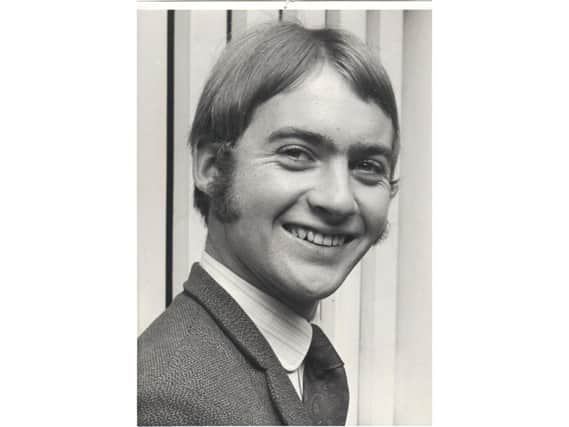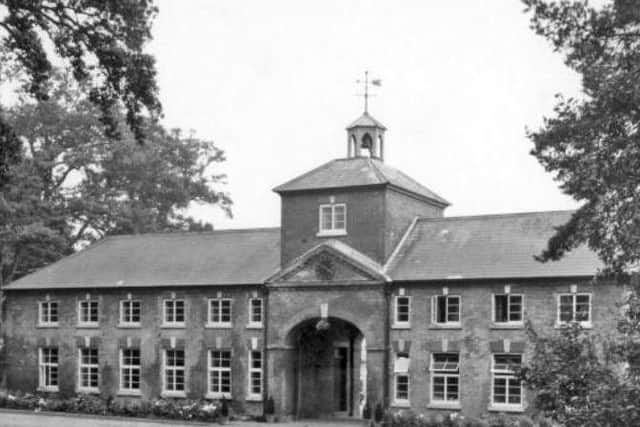LOOKING BACK - April 16, 2020 edition


Former Rugby Advertiser reporter John Phillpott tells the tale of the aristocrat who was very much a legend in her own dinnertime…
Overlooking the picturesque Swift Valley for the past thousand years, the church of Holy Trinity at Churchover must have witnessed countless events in that time.
Advertisement
Hide AdAdvertisement
Hide AdThe church has also seen any number of changes down the ages, in particular the mediaeval building’s radical reconstruction during the 18th and 19th centuries.


However, there is also another reason that marks this place of worship out from all the rest.
And that’s because out of all the churches in the Revel area, Holy Trinity has the earliest opening time for evening Sunday services. The six o’clock start had been decreed way back when by lady of the manor Mrs Arthur James, simply because she wanted to be back at her nearby country pile, Coton House, in time for dinner.
The lords and ladies of the manor of Churchover had lived at Coton House for centuries, the place variously occupied by the Dixwells, Grimes and Arkwrights.
Advertisement
Hide AdAdvertisement
Hide AdIn fact, one was a regicide. John Dixwell was a signatory to the death warrant of Charles I, and fled to Hartford, Connecticut, following the restoration of the monarchy.
It was here that he died a number of years later, having managed to escape arrest by Charles II’s secret agents.
But it was Venetia James, nee Cavendish-Bentinck, who really put the place on the map after her marriage to Arthur James and the couple took up residence at Coton House.
Venetia James was a ‘close’ friend of the future King Edward VII, and he and his shooting party periodically visited Coton House.
Advertisement
Hide AdAdvertisement
Hide AdOnce, when he had ascended to the throne, the King attended Sunday service at Holy Trinity, an event witnessed by villager the late George Hirons, who told me how as a boy he had seen the royal entourage proceed through the village.
But Mrs Arthur James also had another claim to fame. She was as eccentric as they come…
For example, her thrift and meanness were legendary. If there were any meat leftovers after a weekend house party, she would return the scraps to the butcher on the Monday.
One night, after an almost Biblical miracle in which ten people dined off a single chicken, she passed a note to her butler that read ‘DCSC’ – don’t cut second chicken.
Advertisement
Hide AdAdvertisement
Hide AdIf a banquet was being thrown on a Friday, Catholic guests would be offered fish in accordance with their religion. As the diners were served, Mrs James would shout “Fish for the papists, fish for the papists!”
Nothing went to waste. Once, she took milk that her cat had left in its dish, and used it in a visitor’s tea, saying to her housekeeper, within earshot of her guest: “Emily, if the cat has left any of its milk, bring it up for Mrs Coates.”
On another occasion, a veterinarian, summoned to one of the family dogs, was asked to look at an ailing maid when he was finished, since ordinary doctors were “a ridiculous waste of money.”
And then there was the time when, strolling through Hyde Park in London, with Sir Charles Degraz, Venetia asked him to pick up a dead sparrow lying in the grass.
Advertisement
Hide AdAdvertisement
Hide AdHe carried it back to the house, where she called out: “Emily, discommand the cat’s meat. Sir Charles has brought her a fallen bird.”
A friend told the story about travelling back to Coton with Venetia after she had bought a new hat in London.
Having bypassed several trains in order to wait for one with seats in the cheaper third class apartments – the only way she would travel – they found themselves on a station platform waiting for their connection to Rugby.
It was raining, and Venetia lifted up her skirts to protect her new purchase, thereby revealing her red flannel petticoats and bloomers.
Advertisement
Hide AdAdvertisement
Hide AdThe stationmaster protested that she was indecent, but Venetia retorted: “My good man, what you see is old, but the hat is new.”
I discovered these priceless anecdotes in Catherine Caufield’s hilarious book The Man Who Ate Bluebottles and other Great British Eccentrics, published by Icon Books.
Footnote: John Phillpott’s memoir of his time as a reporter on the Rugby Advertiser during the 1960s, titled Go and Make the Tea, Boy! is due out this spring.